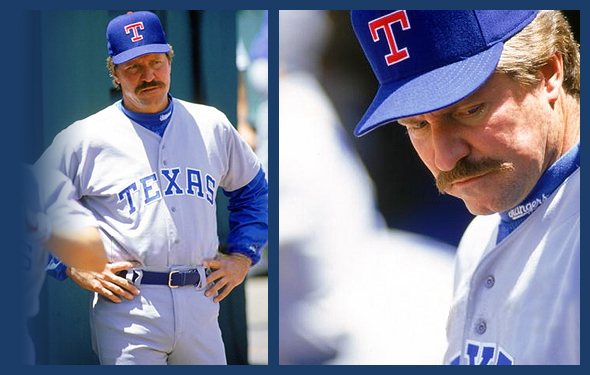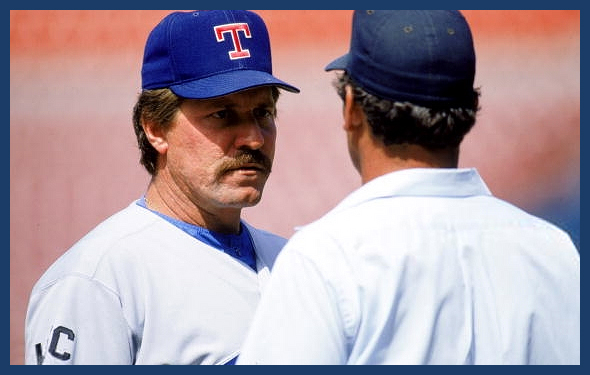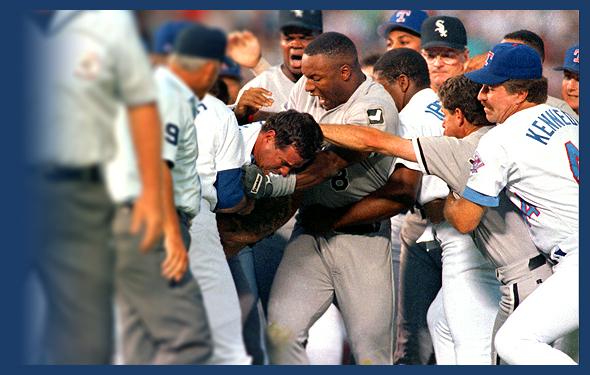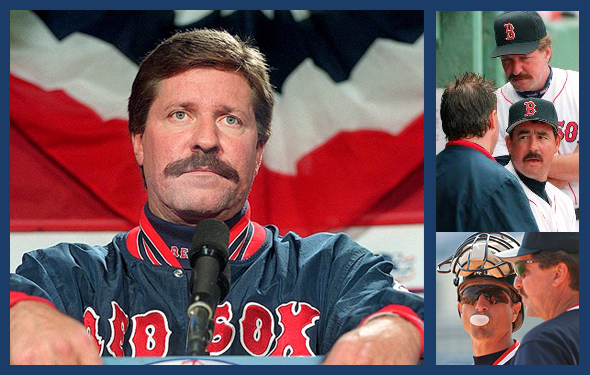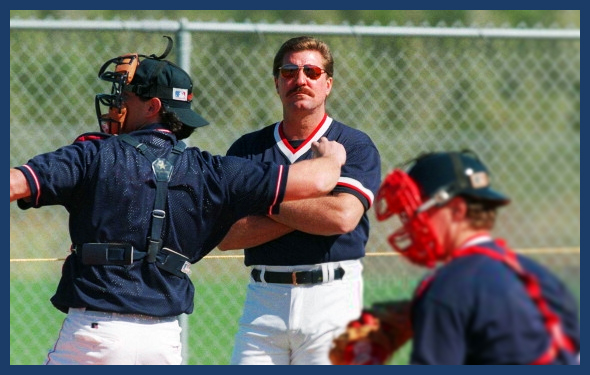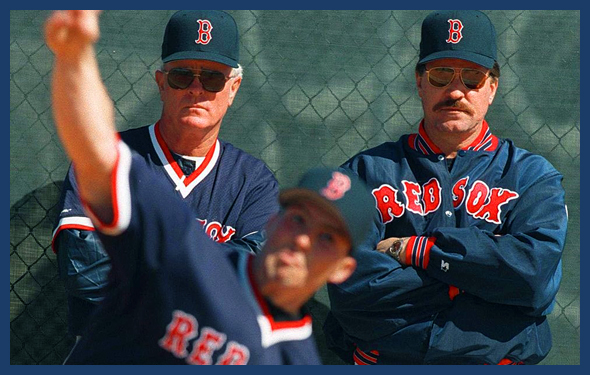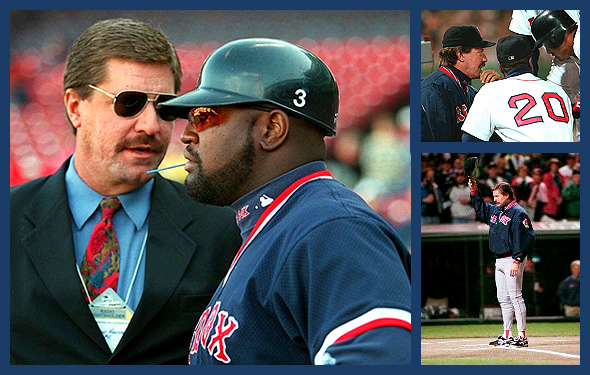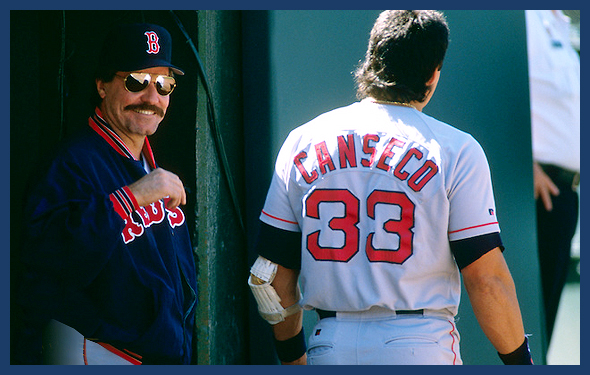Looking from the outside, the beginning of Kevin Kennedy's career in baseball might have looked more like the end of a career, but Kevin leveraged a top-notch work ethic and real passion for the game into a long and successful career in this sport.
Kevin’s love of baseball has spanned his whole life. This passion for the game along with his unique perspective offers something for all young players reaching for that gold ring to hold on to as they find their own success in baseball and in life. Here’s what statistics tell us: Only a few will become that superstar in MLB, but every player can be successful—Kevin Kennedy is not only an example of a full ongoing career in the game of baseball, but is a positive role model with a message for all young players today.
Kevin has been a player in more aspects of the game than most: as a catcher, manager, analyst, commentator and author.
)
I want to share with the youth of today what can happen when you are ready to take advantage of your own opportunities. I know personally that with perseverance, hard work and dedication life can lead to great success and happiness.
Take consistent action to prepare for a future you are passionate about AND stay flexible enough to adapt as your individual path develops—Success is by design, NOT by accident. The real key is to be ready and open to it when your opportunities come.
Not every plan comes to fruition, BUT if you believe in yourself and maintain a strong work ethic, when one door doesn’t open another one will! Behind those “other” doors I found a life and career that was better than I could have imagined. Reflecting on my own journey in MLB has given me clarity and a message that I want to share with young players looking for their future in this great game.
In 1982 my manager, Del Crandall, asked if I would be interested in coaching in the Dodgers’ minor league system—of course, my answer was a resounding “YES!”
In 1983 I started as a pitching coach, hitting coach and 3rd base coach at Lodi of the California League, Class A. Then in 1984 I started my managerial career. For three years I managed at the rookie level, A-ball for a year, AA for one year and AAA for three years. In those eight years, I managed my teams to five 1st place finishes and three 2nd place finishes. In 2012 I was inducted into the Albuquerque Dukes Hall of Fame.
Manager
Choosing a path to keep moving forward in my life, in spite of what looked like an end to my career in MLB, is what created new opportunity for me in baseball.
Having grown up in the Los Angeles area, I’ve been a lifelong Dodgers fan. I started playing baseball at the age of eight and quickly realized that the catcher’s position was the perfect place for me. I went on to play at Taft High School in Woodland Hills. Taft was well known for their baseball program and for turning out many future big league players—my Taft teammates included Hall-of-Famer, Robin Yount.
After high school I enrolled at San Diego State University, studying accounting while I played on their baseball team for four solid seasons.
My goal was to be a big leaguer. In 1976, as an 8th round draft pick by the Baltimore Orioles, my first goal was realized and I thought I would soon be heading to the big leagues.
Within the first year I had moved up from rookie ball to AAA, just one step from the big league. In 1980 I was told that I would be called up September 1st, when the major league roster expanded from 25 to 40—my ultimate goal was in sight. In August, two weeks before I was to join the Orioles, I suffered a debilitating ankle injury while blocking home plate.
My dream of playing MLB had been cut short and although it was a devastating blow, my life was going to go on—I made the decision to finish college, enrolled at Cal State Northridge and graduated with a degree in accounting.
I developed a successful business providing players and staff financial guidance, but they got to know me and recognized my real passion was baseball, not doing taxes!
player



"I learned that not only do I love to play baseball, but I could motivate and lead teams to be successful."
From 1986 thru 1988 I managed Winter Ball in Puerto Rico and in 1989 I managed Winter Ball in The Dominican Republic. These experiences taught me not only how to manage (run a game), but gave me the opportunity to work with players’ different personalities and even different cultures; all of my experience helped to prepare me for managing in the big leagues.
By 1991 I felt ready to coach or manage in the big leagues, but with Tommy Lasorda still the Dodgers’ manager, there was no spot on the big leagues coaching staff.
I sent out eight resumes looking for a big league opportunity somewhere. I had several offers, however the most intriguing was from Montreal. In the winter of 1991 they offered me a 2-year contract to be their 1992-3 Farm Director; I accepted. After a management change in the big leagues, I was selected as Montreal’s new bench coach.
Leaving the Dodgers and going to Montreal propelled my big league career forward—One year into my contract with the Expos, in the winter of 1992, I received a call from the Texas Rangers.
After interviewing with former president George W. Bush, then the managing general partner of the Texas Rangers, I was offered a 2-year contract to manage the Rangers for 1993-94 season. In August 1994 the players went on strike, which they had done before. This time, for the first time in MLB history, the owners’ canceled the remainder of the season. The strike lead to major turnover within MLB organizations. It was in that turmoil that I lost my managers' job with the Rangers, however less than a week later the Boston red Sox had hired me to be their manager for the 1995-96 season.
My first year with The Red Sox we finished 1st in the AL East in spite of many analysts picking us to finish no higher than 4th place in our division. We outperformed anyone’s expectations—in fact, we finished with the third best record in all of baseball. The team was riding high and individual players were reaching for their personal best. In that year Mo Vaughn won the AL MVP and Tim Wakefield resurrected his career, after having been released the year before by Pittsburgh.
In 1996 we got off to a terrible start, 6-19 in April. However, from that point forward we had the best record in professional baseball, finishing the season with a record of 85-77, which was good enough for 3rd place, but just missed out on a wildcard playoff berth.
With the early season turmoil, our great finish wasn’t enough to save my job. After the 1996 season I was let go; which seems to be Red Sox a tradition for team managers' based on the long line that have come before me and since.
Analyst
After leaving Boston, I returned to my home in Los Angeles. ESPN called and offered me a job as a baseball analyst—This was the beginning of my broadcasting career.
I worked as a baseball analyst for ESPN for two years and was then hired by Fox Sports. I learned how to cover live games on TV and deliver key insights as a studio analyst. I worked on both the Fox Network and the cable side as well radio broadcasting for Fox Sports Radio. I spent two years in Tampa Bay as a broadcaster/color analyst for the Rays. I loved studying the bigger picture of MLB and wanted to learn everything there is to know about broadcasting!

At the start of the Major League Baseball season in 2005 XM Satellite Radio launched their dedicated baseball talk channel to compliment live Major League Baseball broadcasting. Their goal was to create a channel that was unlike anything else that had been done on radio; MLB Network Radio.
The inaugural lineup included guys like Larry Bowa, Buck Martinez, Charley Steiner, Rob Dibble and Cal and Bill Ripken.
Rob Dibble and I were tapped to host The Show, airing in their prime afternoon drive edition.
The Show was all about building up the game, and giving people an idea of what it really means to play the sport from a player’s perspective, a manager’s perspective. The Show was our show for the next six years.
The 2016 MLB season was my 12th season broadcasting on MLB Network Radio.
Also in 2005, I was approached by a writer who felt my two careers, starting as a player/manager then becoming a broadcast analyst gave me a perspective that readers baseball fans would find interesting. Later that same year my book, entitled “Twice Around the Bases” was published.
Recently I started a regular radio podcast with longtime colleague Rich Herrera. We broadcast Inside the Dugout twice a week plus a special Wednesday edition Southern California Baseball Report with an in depth look at the Dodgers and Angels for the SoCal fans.
I grew up as a hometown Dodgers fan, began my professional career with the Dodgers and today I am happily back home in L.A., broadcasting alongside Rick Monday for the Dodgers!
My life and career have come full-circle. I’m excited to teach the next generation about the great game of baseball and help them see that with passion for the sport and perseverance amazing things can happen!
Kevin Kennedy has experienced something that few people will—A nearly 40-year career in Major League Baseball.
Thank you for your interest in having Kevin at an upcoming event!
We're happy to answer any questions you have about booking Kevin for a speaking engagement or broadcast. Please let us know how best to contact you to discuss your goals and schedule for the event.
Book Kevin for an Event
Connect
Kevin is available for broadcast or speaking engagements. We'd like to answer any questions or talk about your event—Contact us by clicking "Book Kevin for an Event".
